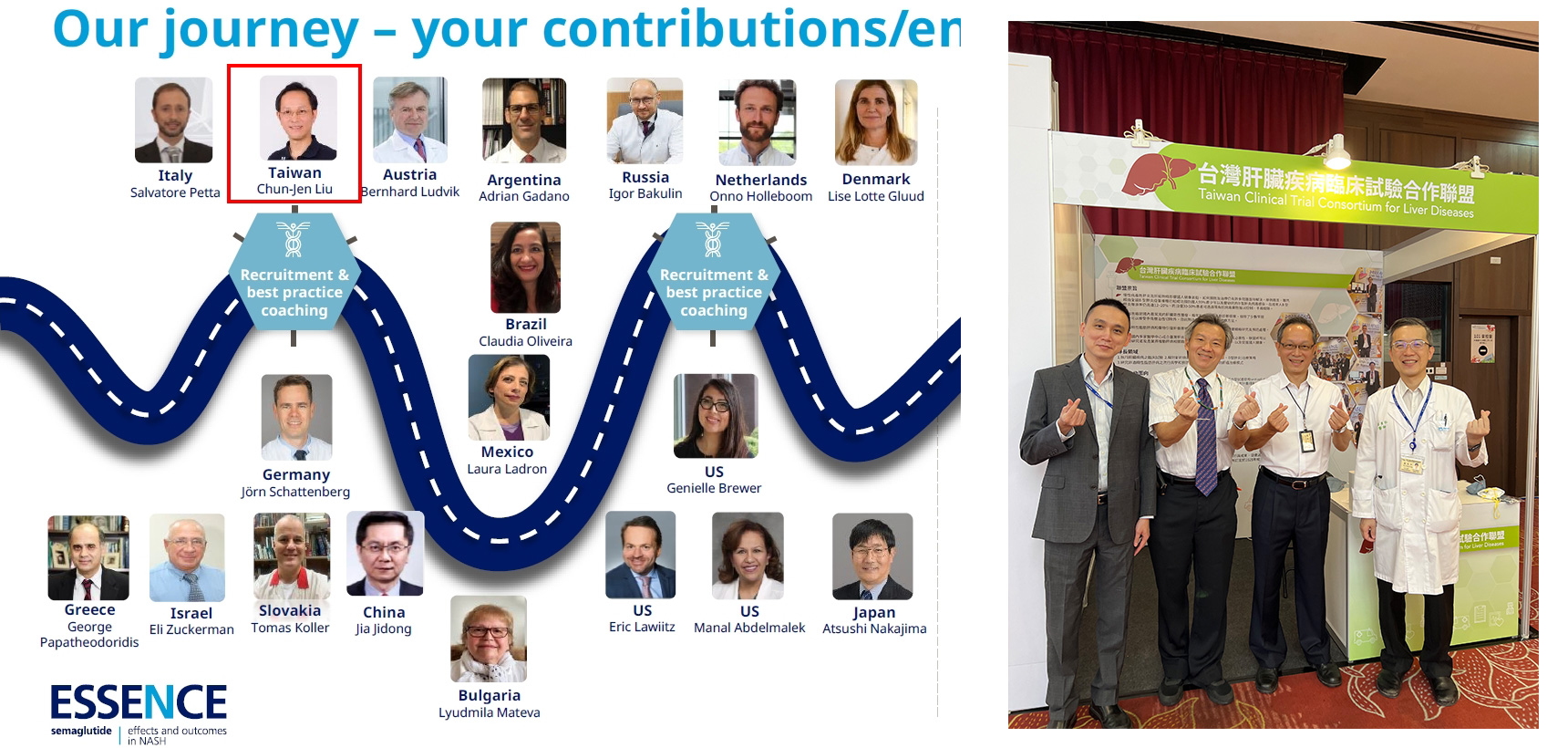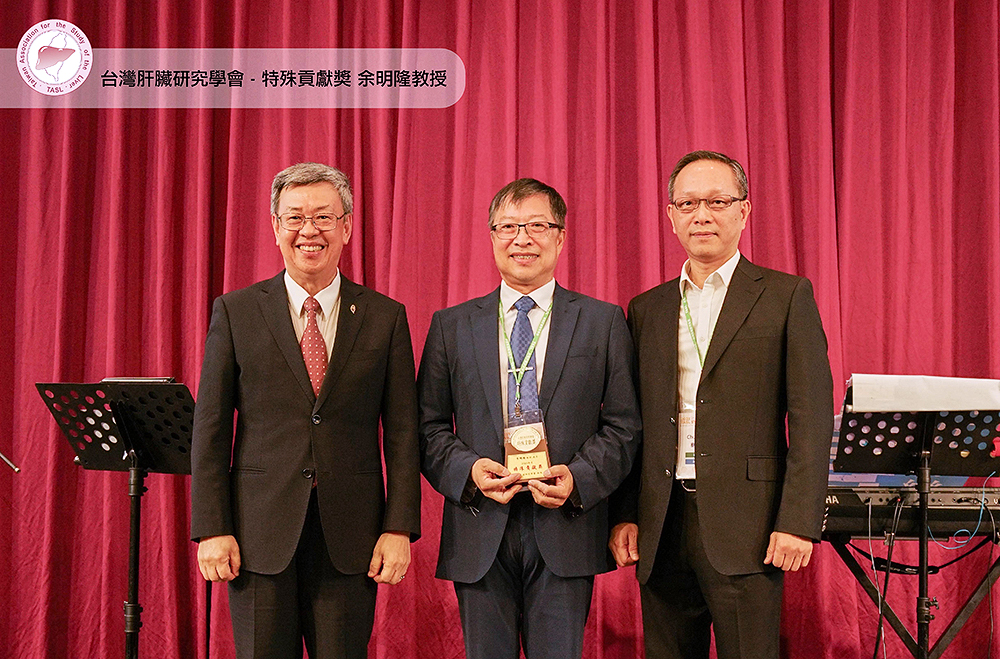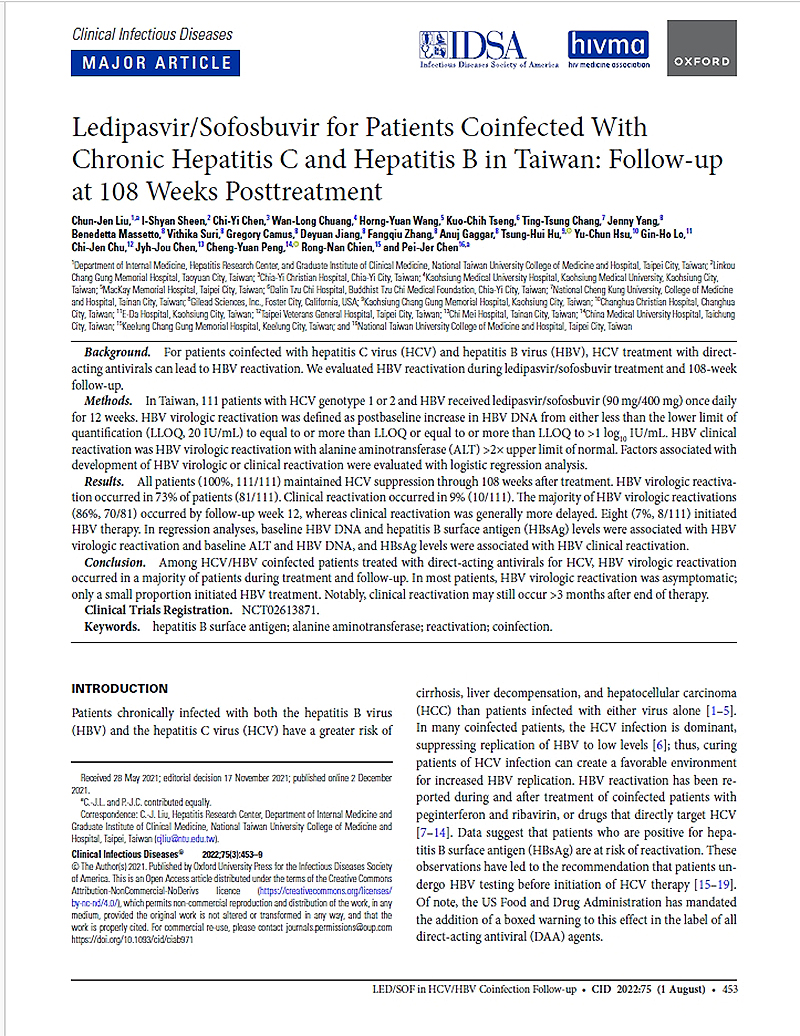1. Chronic viral hepatitis and hepatocellular carcinoma are still major health problems in Asian Pacific region. Although the national hepatitis B vaccination has successfully prevented 99% of adolescents and infants from hepatitis B virus infection, the carrier rate of hepatitis B in adults is still as high as 12-20%, and only 30-50% of patients are controlled by existing antiviral drugs but not easy to eradicate.
2. Hepatocellular carcinoma is the most common liver malignant tumor in Taiwan. There are about 2,000 new diagnoses every year. However, except for a small number of early-stage patients who can receive surgical resection, there is no effective treatment for HCC.
3. After controlling chronic viral hepatitis, nonalcoholic fatty liver diseases (NAFLD) and drug-induced liver injury (DILI) will become next most common etiologies within liver diseases.
4. It is necessary to establish Taiwan Clinical Trial Consortium for Liver Diseases. The purpose of the consortium is to solve these devastating health problems through the conduction of clinical studies with high quality. Also, we can assist researchers and the industry to initiate liver disease-related clinical research and trials; promote the development of new drugs, and promote the health of the people.
1. Conduct clinical trials of liver diseases
2. Investigate new treatment for viral hepatitis (chronic HBV, HCV, HDV)
3. Study for Non-alcoholic fatty liver disease and drug-induced liver injury
4. Investigate new treatment for hepatocellular carcinoma (HCC).
International cooperation
- Conduct phase III global clinical trial using Semaglutide in patients with NASH, in cooperation with a global company.

- Conduct phase II global multi-center clinical trial using EYP001 for treatment of patients with hepatitis B, sponsored by a French pharma.
- Conduct phase II global multi-center clinical trial using BRII-835 for treatment of patients with hepatitis B, sponsored by a golbal pharma.
Economic aspects
- 1. Conduct phase III global multi-center clinical trial “Safety and Efficacy of Ledipasvir/Sofosbuvir Fixed-Dose Combination in Adults With Chronic HCV and HBV Coinfection”
- 2. PI-initiated clinical trial: NUC in Preventing HBV Reactivation in HCV/HBV Co-infected Patients Receiving DAA for CHC in cooperation with local industry.


Social and other aspects:
- Publish a series of high-impact articles under the leadership or assistance of our consortium. For example, “Entecavir prevents HBV reactivation during direct acting antivirals for HCV/HBV dual infection: a randomized trial. (Cheng PN et al. Clin Gastroenterol Hepatol. 2022 Dec)”, “Ledipasvir/Sofosbuvir for Patients Coinfected With Chronic Hepatitis C and Hepatitis B in Taiwan: Follow-up 108 Weeks Posttreatment. Clinical Infectious Diseases 2022.”
- In the past four years, more than 110,000 patients with chronic hepatitis C in Taiwan have already received DAA therapy. Among them, the number of patients who received Harvoni® treatment because of our successful clinical trial data was more than 30,000.
- These treatment achievements will help achieve the goal set by the Ministry of Health and Welfare, that is to successfully eradicate hepatitis C virus infection by 2025, which is five years earlier than the 2030 target set by the WHO.
Important notes of the consortium
- The cooperative alliance was established in May 2017.
- Development of anti-HDV assay in December 2017, which was successfully approved by TFDA.
- In March 2018, our research results successfully assisted pharmaceutical companies in obtaining new indications and health insurance benefits for hepatitis C drugs, becoming an important criterion for treatment guidelines around the world.
- In 2021, 2022, 2023, Professor Liu is on the list of World's Top 2% Scientists, Stanford University statistics.
- 5. In 2023, Professor Yu was awarded the 2023 Special Contribution Award by the Taiwan Association for the Study of the Liver (TASL) in recognition of his outstanding research in liver medicine and his contribution to the health of the Chinese people, such as: Asia Pacific Liver Society Chronic Hepatitis C Treatment Guidelines 2012
National Taiwan University Hospital
National Taiwan University Hospital
National Taiwan University Hospital
National Taiwan University Hospital
National Taiwan University Hospital
National Cheng-Kong University Hospital
Kaohsiung Medical University Hospital
Kaohsiung Chang Gung Memorial Hospital
Contact Information
c-IRB



